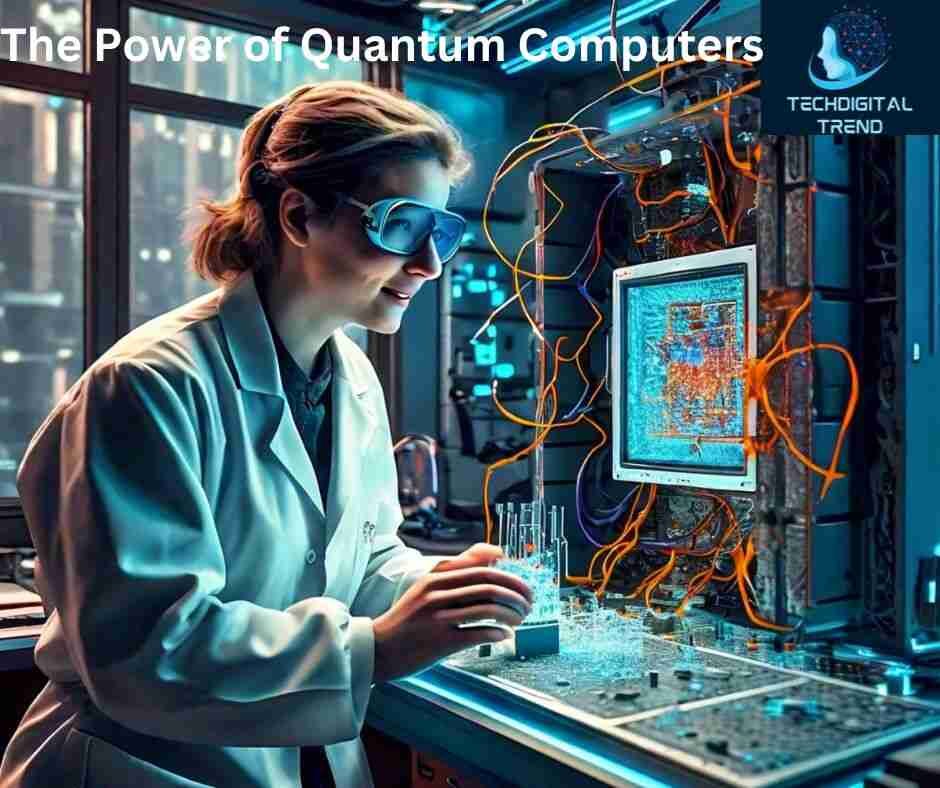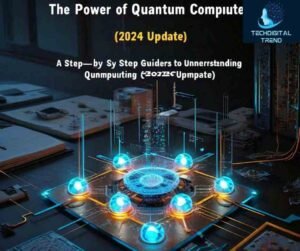Table of Contents
ToggleQuantum computers
Quantum computers is a revolutionary technology that has the potential to change the way we approach complex problems in various fields. In recent years, quantum computing has become more accessible to the general public, with companies like IBM and Google offering cloud-based quantum computing services. In this article, we will explore the basics of quantum computing, including what it is, how it differs from classical computing, and the fundamental concepts that make it work.
What is Quantum Computing?
Quantum computing is a kind of computing that manipulates data and performs computations using the ideas of quantum physics. Quantum computing makes use of quantum bits, or qubits, as opposed to classical computing, which stores and processes information using bits. Because qubits may exist in numerous states at once, they are unusual in that they enable significantly quicker processing of complicated data.
Quantum Computing vs Classical Computing
Bits are used in classical computing to store and process data. There are just two possible states for bits: 0 and 1. Qubits, on the other hand, are used in quantum computing and are capable of being in several states at once. Because of this, complex data can be processed by quantum computers far more quickly than by traditional computers.
Quantum Bits and Qubits
The basic building blocks of quantum information are called qubits. They differ significantly from classical bits, although they are comparable nonetheless. Qubits can handle complicated data more quickly because they may exist in numerous states at once and get “entangled” with one another.
Quantum Gates and Operations
The basic building blocks of quantum computing are quantum gates and operations. The quantum counterpart of classical computing’s logic gates are known as quantum gates. They carry out qubit operations like entanglement, rotations, and measurements.
Quantum Computing Applications
Quantum computing has many potential applications, including:
- Cryptography and cybersecurity
- Optimization and machine learning
- Drug discovery and materials science
- Quantum chemistry and physics
Quantum Computing Hardware
We’re still early in the development of quantum computing hardware. The following are some of the most popular hardware platforms for quantum computing:
- IBM Quantum Experience
- Google Quantum AI Lab
- Rigetti Computing
Quantum Computing Software
Quantum computing software is also still in the early stages of development. Some of the most popular quantum computing software platforms include:
- Qiskit
- Cirq
- Q#
Challenges and Limitations
- There are still a lot of obstacles to be solved in the still-emerging field of quantum computing. Among the most significant obstacles are:
Error correction and noise reduction - Scalability and quantum control
- Quantum algorithms and software development
Quantum Computing Basics
What is Quantum Computing?
- Utilizing the ideas of quantum physics, quantum computing is a kind of computing that performs operations and computations on data.
- It uses quantum bits or qubits, which can exist in multiple states simultaneously, allowing for much faster processing of complex data.
Quantum Computing vs Classical Computing
- Classical computing uses bits to store and process information, which can only exist in one of two states, 0 or 1.
- Quantum computing uses qubits, which can exist in multiple states simultaneously, allowing for much faster processing of complex data.
Quantum Bits and Qubits
- The basic building blocks of quantum information are called qubits.
- They can exist in multiple states simultaneously and can become “entangled” with each other, allowing for faster processing of complex data.
Quantum Gates and Operations
- Quantum gates and operations are the fundamental building blocks of quantum computing.
- They perform operations on qubits, such as rotations, entanglement, and measurements.
Quantum Computing Applications
Cryptography and Cybersecurity
- Quantum computing has the potential to break many encryption algorithms currently in use.
- It also has the potential to create new, quantum-resistant encryption algorithms.
Optimization and Machine Learning
- Supply chain management and other complicated systems may be optimized with the use of quantum computing.
- It can also be used for machine learning, such as image and speech recognition.
Drug Discovery and Materials Science
- Quantum computing can be used to simulate the behavior of molecules, leading to new insights in drug discovery and materials science.
Quantum Chemistry and Physics
- Quantum computing can be used to simulate the behavior of atoms and subatomic particles, leading to new insights in quantum chemistry and physics.
Quantum Computers Hardware
IBM Quantum Experience
- IBM’s quantum computing platform, which allows users to run quantum algorithms on real quantum hardware.
- Google Quantum AI Lab
- Google’s quantum computing platform, which allows users to run quantum algorithms on real quantum hardware.
Rigetti Computing
- Rigetti’s quantum computing platform, which allows users to run quantum algorithms on real quantum hardware.
Quantum Computers Software
Qiskit
- IBM’s quantum computing software platform, which allows users to write and run quantum algorithms.
Cirq
- Google’s quantum computing software platform, which allows users to write and run quantum algorithms.
Q#
- Microsoft’s quantum computers software platform, which allows users to write and run quantum algorithms.
Challenges and Limitations
Error Correction and Noise Reduction
- Quantum computers are prone to errors due to the noisy nature of quantum systems.
- Developing robust methods for error correction and noise reduction is an active area of research.
Scalability and Quantum Control
- Currently, most quantum computers are small-scale and require complex control systems.
- Scaling up to larger systems while maintaining control is an active area of research.
- Quantum Algorithms and Software Development
- Developing practical quantum algorithms and software for real-world applications is an active area of research.
In conclusion,
The science of quantum computing is developing quickly and has the potential to completely change how we solve complicated issues across a range of sectors. We may realize the full potential of quantum computing by comprehending its fundamentals, which include qubits, quantum gates, and operations. Despite the obstacles and restrictions that still need to be removed, the potential advantages of quantum computers make it an intriguing and valuable area of study.
We hope you now have a firm grasp on quantum computers and its uses thanks to our extensive tutorial. We urge you to keep studying and investigating this exciting topic of programming, regardless of your level of experience.
Open this link: Tap to here















